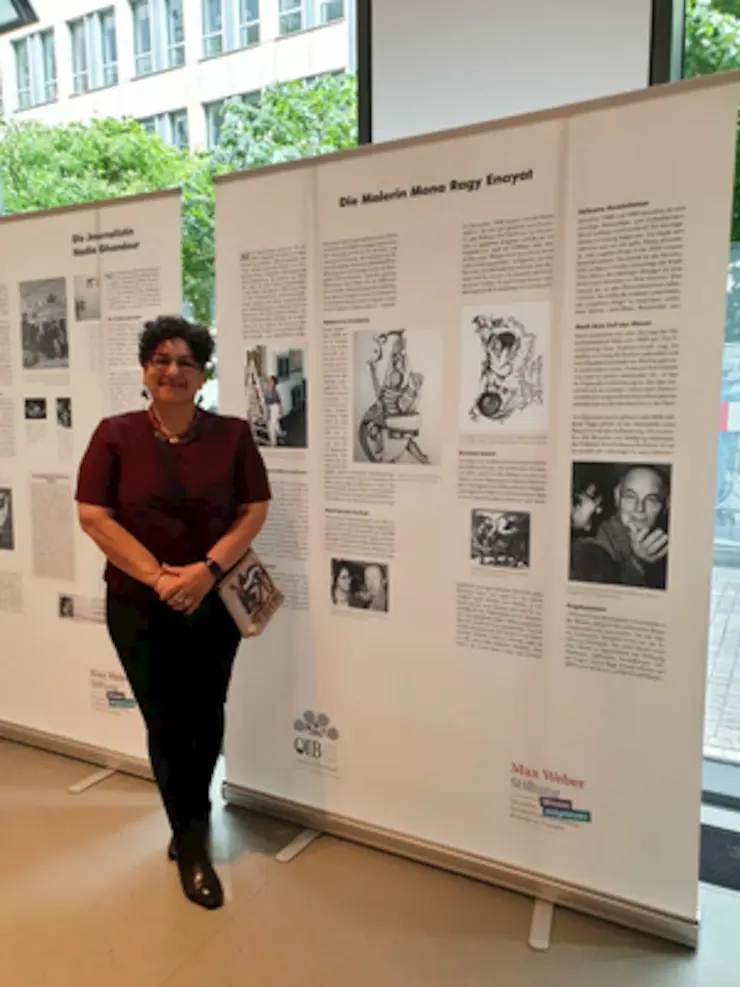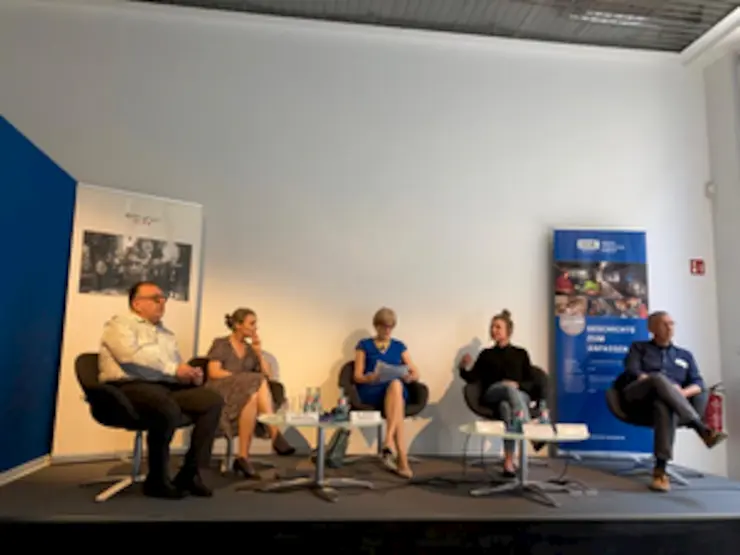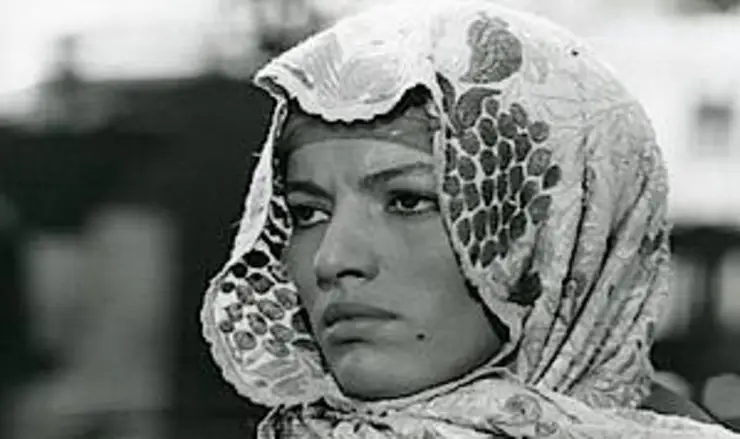
Event 1: Photo exhibition "From the Middle East to the Eastern Bloc - Student Life in the Cold War"
The photo exhibition presents on 18 panels general information about foreign students in the Eastern Bloc and especially in the GDR, concrete biographies, activities, knowledge relations and lifeworlds of Arab art students in the GDR, Poland and the USSR. It shows how Iranian communist intellectuals in exile were involved in higher education in Berlin and Warsaw, tells the story of the Turkish communist radio in Leipzig "Bizim Radyo" and its student employees. Special colleges for foreign students in Moscow and Prague are presented. The People's Republic of Poland established the Department of Architecture and Urban Planning at the University of Mosul in Iraq - this is also the subject of the exhibition. Several panels are dedicated to women who came to study in the countries of the Eastern Bloc - aspects of emancipation and equality are addressed here; the biographies of Egypt's first prima ballerina, Magda Saleh, and the famous Turkish writer Oya Baydar are also presented.
The Exhibition took place in June, 11th – 20th, in the DDR Museum in Berlin.

Event 2: Panel Discussion "From the Middle East to the GDR - Student Life in the Cold War".
Between 1951 and 1991, approximately 75,000 students from abroad studied in GDR universities. In 1988, 13,400 students from 126 countries were enrolled, including about 2,000 from the Middle East. Who were these young people? How were they viewed by society, treated by the state, and controlled by state security? How did everyday life under socialism influence their view of the GDR and also of their countries of origin? What experiences did they bring back with them to their home countries?
Panelists:
- Dr. Sophia Hoffmann, Leibniz Center for Modern Oriental Studies, Berlin
- Stella Kneifel M.A., University of Erfurt
- Dr. Ala Al-Hamarneh, Orient-Institut Beirut, Alumnus of the Ukrainian National University "Taras Shevtchenko" - University of Kiev, Ukraine
- Dr. Patrice Poutrus, University of Erfurt, Germany
Moderation: Prof. Dr. Birgit Schäbler, Head of the Research Project
The panel discussion took place on the 11th of June in the conference room of the DDR Museum in Berlin.
Event 3: Panel Discussion "From International Solidarity to Soft Power to Science Diplomacy - Is There a Continuity from the Cold War to Today?"
In the larger political context, the question of the relevance and efficacy of "knowledge relations" in world politics arises. Do "knowledge relations" ─ that is, relations such as those endowed by international academic mobility, years abroad, fellowships-have political relevance? Considered over time: Can we identify a continuity from the Cold War to today, i.e., from international solidarity, to soft power, to science diplomacy?
Panelists:
- Gabriele Krone-Schmalz, journalist, publicist, former ARD correspondent in the USSR and Russia, professor of television and journalism at the University of Applied Sciences Europe in Iserlohn.
- Matthias Platzeck, Chairman of the German-Russian Forum, former SPD Chairman and Minister President of Brandenburg.
- Zaur Gasimov, member of the research project and research associate at the Department of Eastern European History at the University of Bonn
Moderation and project presentation: Prof. Dr. Birgit Schäbler, head of the research project
The panel discussion took place on the 16th of June in Cinema Babylon in Berlin, and was attended by a good crowd of people.

Event 4: Relationships in the Cold War – Films Between North Africa and the Eastern Bloc
Public Film Screening
Berlin, October 11/12, 2021
In cinema, the Cold War is often presented in the context of espionage and other such operations. The relationships between the Global South and the two Cold War power blocs, however, were also marked by non-alignment, anti- and post-colonialism, wars of liberation, and individual interpretations of socialism and communism.
The film festival program on the 11th and 12th October 2021 included mainly films made by North-African directors who studied in the Eastern Bloc and addresses personal and social conditions and at times a clash of ideologies.
The movie "Ahdath Sanawat al-Djamr/Chronicle of the Years of Embers" by the Algerian director, cameraman and script writer Mohamad Lakhdar-Hamina who studied at the Academy of Performing Arts (FAMU) in Prague at the behest of the National Liberation Front, demonstrates that the beginning of the Algerian War in 1954 was the culmination of a long battle for independence that started with the French landing in 1830. The crew of the movie includes well-known European anti-fascist activists such as Italian cameraman Francesco Gatti, Greek actor Yorgo Voyagis and French actor François Maistre. This movie is an example of the anti-colonial knowledge relations between individuals and societies in the Eastern Bloc, Western Europe and North Africa. The movie won the Golden Palm in Cannes 1975.
"Al Nil wal Haya/ Once upon a Time ... the Nile" by Youssef Chahine from 1969, rejected by both the Soviet and the Egyptian authorities, is the only Soviet-Egyptian coproduction in which actors and crews from both countries worked side by side, with a soundtrack by Aram Khachaturian, script by Nikolai Figorovsky and Abdelrahman el-Sharqawi. The coproduction of Mosfilm and Cairofilm was to highlight the Egyptian-Soviet cooperation, culminating in the construction of the High Dam, but Chahine's film interprets human relations and social and political issues in both societies.
The short graduation movie "Hunting Party" (1964) by Sudanese director Ibrahim Shaddad, graduate of Eastern German Academy for Film Art Potsdam-Babelsberg is an early scream against racist violence staging the hunt for a black man within a rural community.
The Sudanese director Suliman Elnour studied in the 1970s at the Gerasimov Institute of Cinematography in Moscow (WGIK). "Africa, The Jungle, Drums and Revolution" (1977) is based on Soviet archive material and interviews. His graduation film "It still Rotates" (1978) led him to the People's Democratic Republic of Yemen, where he showed the fundamental significance of education in building the new state.